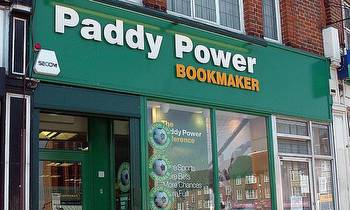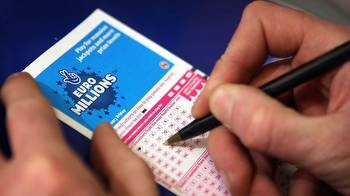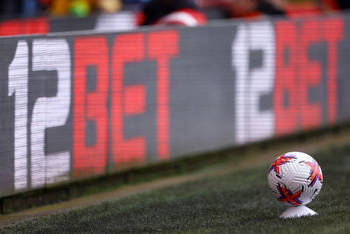Gambling logos feature 700 times in football match, says Ch4 documentary
Gambling logos can appear more than 700 times in a single football match, according to a documentary in which former Scottish Conservative leader Ruth Davidson calls for a “radical rethink” of the relationship between the sport and betting.
In her first outing as a TV presenter, Davidson describes the gambling industry’s relationship with football as a “parasite that’s taking over the host” in the Channel 4 programme, due to air on Monday evening.
The influential life peer’s intervention in the debate comes with the government in the midst of a review of gambling laws, which will include an examination of sponsorship deals.
Davidson, a keen football player and Dunfermline Athletic fan, spoke to former addicts, clubs, campaigners and academics, including one who has measured the visibility of gambling during match broadcasts.
According to analysis using methodology drawn up by Dr Robin Ireland at the University of Glasgow, there were up to 716 gambling “exposures” in a match between Newcastle United and Wolverhampton Wanderers, both of which have gambling sponsors - equal to more than six logos per minute.
While the industry agreed to a voluntary “whistle-to-whistle” ban on TV advertising during afternoon games, Ireland’s research found that their branding is still constantly visible, particularly on pitchside hoardings.
Davidson also raises concerns about “cross-selling”, where gambling companies invite fans betting on football to try other products, such as casino games that typically carry higher rates of addiction than sports betting.
A data scientist who has worked for gambling firms, and spoke to Channel 4 anonymously, said: “The real money is if you able to […] make those customers bet on casino as well. In sports you can win if you’re well-informed or know how to bet but in gaming, in the long run, you’ll always be losing.”
He said gambling firms were using algorithms to identify customers who they might want to entice to bet more or try other products, deploying controversial incentives such as free bets and bonuses.
“If you see someone is spending a lot, you’ll want to make sure they’re doing it regularly,” he said.
Davidson also interviewed John Whittingdale MP, the junior minister overseeing the gambling review at the department for digital, culture, media and sport (DCMS).
Whittingdale admitted that online gambling has presented new public health concerns that should “trump” any fears about the impact on £3bn of annual betting duty revenue, if industry profits are crimped by stricter regulation.
But Davidson came away unconvinced that curbs on advertising are likely, with the minister citing a lack of evidence linking it to addiction.
Whittingdale’s appointment at DCMS has raised concerns among campaigners for reform, due to past comments that appeared to play down the dangers of FOBT digital roulette machines, which the government later branded a “social blight”.
The documentary, entitled Gambling’s Football Addiction, charts how entrenched gambling has become in the gameand among those who watch it.
It cites the gambling industry’s annual contribution to football clubs’ coffers of more than £100m – plus around £200m spent with broadcasters – which football authorities and the betting groups have said makes any sponsorship restrictions unwelcome.
But Tranmere Rovers chair and former Football Association boss Mark Palios told Davidson that the club had successfully weaned itself off gambling sponsorship income.
The documentary also explores gambling addiction suffered by footballers, including former Tottenham and England defender Stephen Caulker.
According to the Sporting Chance clinic, which helps athletes with addiction, gambling has overtaken drugs and alcohol as the most common addiction among professionals seeking treatment.
A spokesperson for the Betting & Gaming Council said: “A recent study from Professor Ian McHale from the University of Liverpool considered the relationship between football sponsorship, betting participation and problem gambling, and concluded there was no evidence that sponsorship of clubs or leagues by betting operators influenced participation in betting.
“A recent report by the Gambling Commission also suggested problem and at-risk gambling rates fell in 2020, however one problem gambler is one too many, which is why we will continue our work on further improving standards and promoting safer gambling.”



































